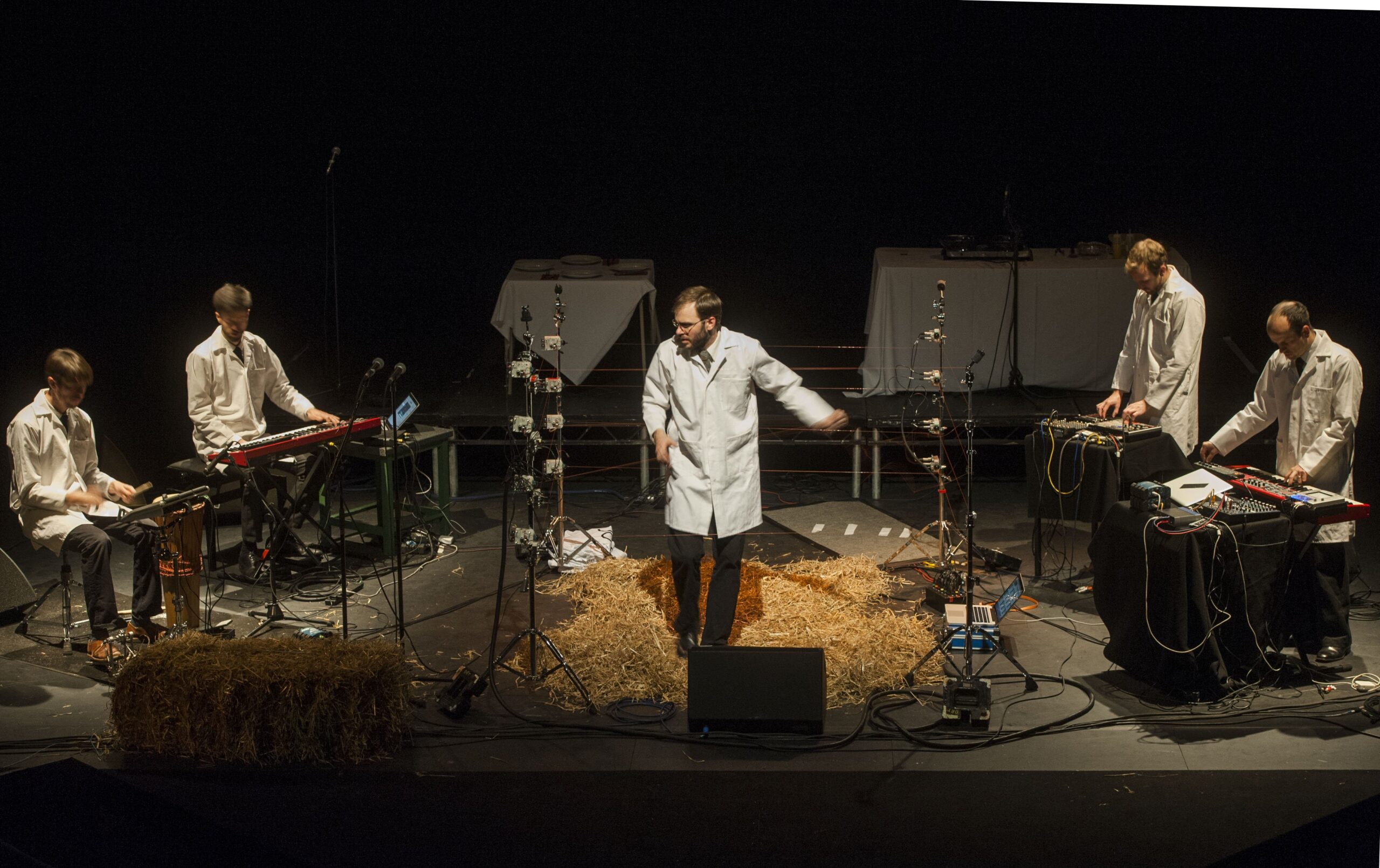
Performance of One Pig
A survival story
When public funding dried up, NEoN, Dundee’s digital arts festival, faced a stark choice: adapt or die. Lyall Bruce tells the story.
Despite the past success of Dundee’s NEoN Festival, and its value in positioning Dundee internationally at the forefront of the digital arts, council funding was cut and it was sink or swim. The organisers decided to push ahead despite having just £750 in cash. While Dundee has a global reputation as a centre for computer games, the festival is dedicated to promoting awareness of the role of computers across the spectrum of arts and cultural activity. A series of businesses and institutions, led by my organisation Fleet Collective, collaborated to stage the fourth annual festival last November. It attracted 4,000 visitors to a week of exhibitions, dance, light projection, DJ/VJ sets, debates, a Pecha Kucha night and parties.
Rather than giving up, we made full use of a really active and willing network of contacts who contributed all sorts of things, like spaces and artworks. At least two of the events have grown legs and may be repeated in their own right in 2013, including a drop-in-and-play session hosted by the DCA contemporary arts centre. Visitors could play games and chat to leading developers including Dr Pippin Barr, who the organisers spent some precious funds on to bring over from Malta. The V&A (which is opening a museum in the city), along with bars and other venues, joined the effort, some using bar takings to cover costs.
The organisers also came up with the idea of letting computer artists, scientists and musicians reprogramme the advanced LED lighting system in Abertay University’s Centre for Computer Games Excellence, to create an audio-visual spectacular, called ‘100,000 Lux’, which was based on data from the Solar Dynamics Observatory. Abertay, and also put on an exhibition of robotic art by Peter William Holden. German-based but UK born, it was his first show in this country.
The point is to showcase arts and artworks that would not be possible without computers – something that sounds a tall order if there is very little money. The first thing we did was to identify things like salon events, talks and tours that engage people but do not cost much to put on. After that we looked for things which venues could make some money on, and the little cash we had was focused on events that would bring an extra splash to the festival. Reciprocal benefits were a major factor. The Dundee Rep decided to put on a performance of the controversial One Pig show, which charts an animal’s life from birth squeal to dinner plate. Matthew Herbert’s musical performance was not the theatre’s usual fare, but by teaming up with NEoN, it gained extra positive publicity and tapped into a new audience. Equally helpful was the willingness of contributors to lend resources, like PR support.
The festival’s success underlines the importance of networks linking public institutions with creative businesses and grassroots artists. We were able to get people playing to their particular strengths to put on a festival that was diverse, involved a numbers of firsts, and which brought benefits to city and its arts community by enhancing our reputation as an emerging centre of arts and culture.
The NEoN organisers have now created a charity which they hope will allow them to start raising cash again, and to promote the digital arts all year round.
Lyall Bruce is Director of Fleet Collective.
Join the Discussion
You must be logged in to post a comment.